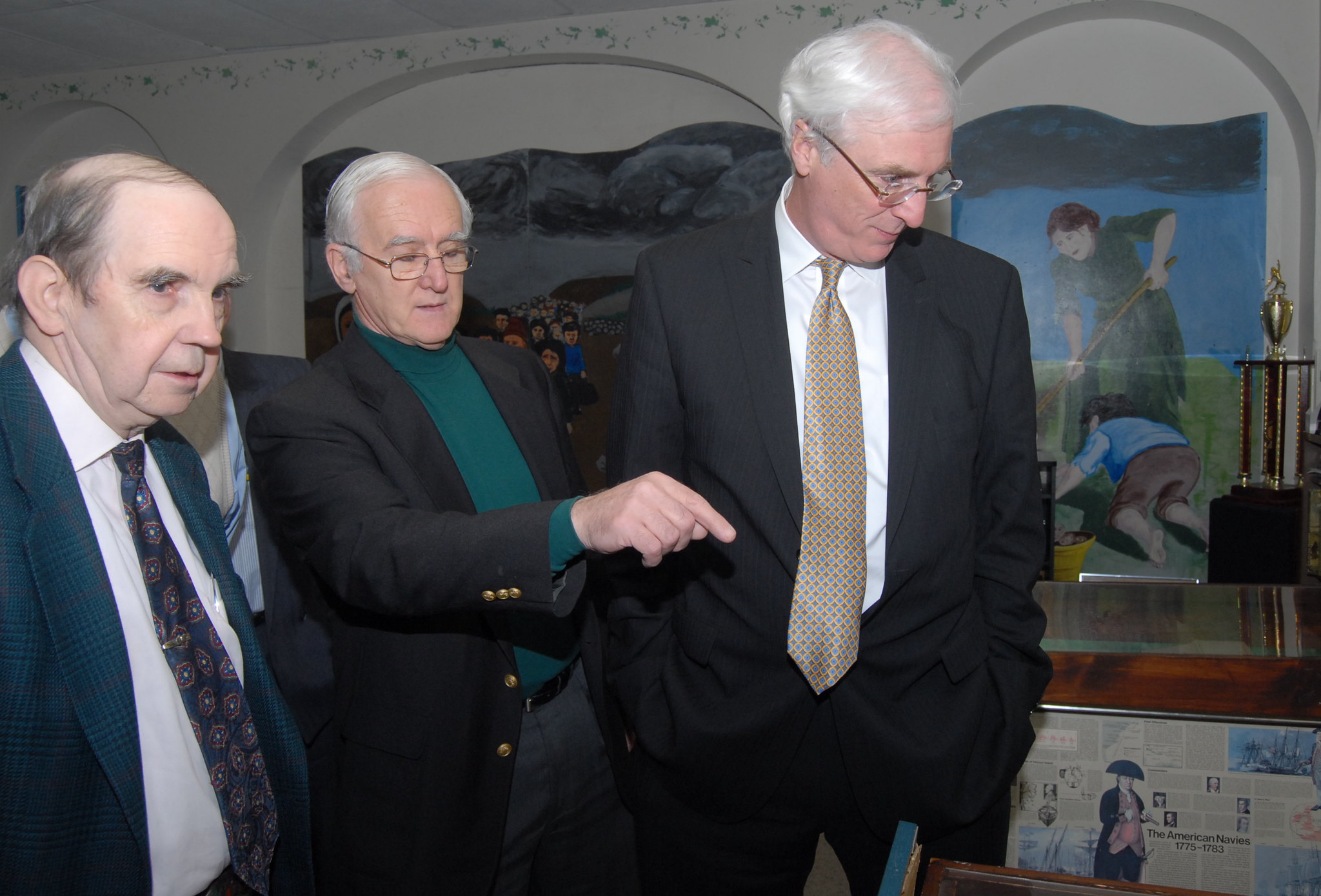Seamus Kelleher, the multitalented guitarist-singer-songwriter and alum of the celebrated band Blackthorn, has struggled with depression and anxiety for decades. When he was 20, he spent five weeks in a psychiatric hospital.
During that time, when he was living in his hometown of Galway, he recalls going into his kitchen, pulling out a bread knife and holding it to his wrist.
“This is a very clear memory,” he says, “I was incredibly depressed. I was suicidal. I had no intention of doing it then, right? None. But that was my insurance policy. If it didn’t get better, I could end it. And that was at 20 years of age. I had my whole life ahead of me, great rock and roll bands. On the surface, I had everything. But for me, if the pain got any worse, that was my exit strategy.”
Kelleher says he entertained thoughts of suicide again, about seven or eight years ago, but he was extremely fortunate to have been surrounded by people who recognized that he was in bad shape and steered him in the direction of the help he so badly needed.
A recovering alcoholic, he got sober six years ago. “That first year, I was just focusing on my sobriety and trying to make sure that I stayed sober,” he recalls. “But then I realized, I’ve been pretty lucky. I’ve had a great career despite all the crap. I didn’t fall to suicide, and so I thought, how can I help other people? How can I use my skills?”
Drawing on his experience, Kelleher became a motivational speaker, in addition to his musical career. Recently, he has been teaching suicide prevention skills to first-year medical students at Texas A&M College of Medicine.
Now, he’s taken yet a bigger step, as a founding board member of the nationwide nonprofit Suicide Prevention Alliance, which launched this week. The alliance’s mission is to support those who are having thoughts of suicide and those who have been affected by suicide. “We also want to collaborate with the community and its leaders by increasing awareness, reducing the stigma and providing data-driven education and techniques to prevent suicide,” Kelleher says. “That’s at the core of who we are.”
Kelleher was drawn into the alliance through his friendship with Govan A. Martin, the organization’s chair and executive director. A retired Pennsylvania state trooper who lost his brother to suicide, Martin has been working in suicide prevention for about 25 years.
“He’s been a tireless worker in suicide prevention,” says Kelleher, “just an extraordinarily saintly individual. He’s just one of those people you meet in your life, you’d do anything for him. He’s just so driven.”
Kelleher met Martin through a mutual friend. At the time, Kelleher was getting certified in QPR, a suicide prevention protocol. It’s short for “Question. Persuade. Refer.”
The fundamental belief behind QPR, Kelleher explains, is that if you see someone in crisis, you start asking questions. You then persuade that person to seek help and refer them to an appropriate resource—if necessary, driving them to the nearest crisis center or emergency room.
“That’s QPR in a nutshell,” says Kelleher, who is a QPR instructor. “There’s a QPR Institute, and what they do is train people, and they call them gatekeepers. Just as with CPR, you’re trained to recognize somebody in crisis. You know what to do, but you’re not a therapist. You’re not there to diagnose them as having depression or anxiety, or anything like that. But you’re trained to recognize the signs. Your job is to refer them to somebody, a therapist who can help them. Your job is not to treat them.”
The Alliance will offer training in QPR, he says. Also offered will be ASIST (Applied Suicide Intervention Skills Training), Mental Health First Aid and Youth Mental Health First Aid. But that’s not all.
“One of the things we do is pay attention to what is called ‘loss survivors’,” Kelleher explains. “That’s someone who has lost somebody through suicide. That number is huge. Last year, there were 47,511 suicides. So if you think of that, the amount of family members affected is huge. So there’s a huge trickle-down of people whose lives have been affected—people who ask, could I have made a difference? Could I have helped them? And in many cases, there’s no way you could have helped them because people who are suicidal often do a great job of hiding their intent. So what we’re doing is providing support for those people. Basically, it’s a resource center.”
The Alliance will also work with local suicide task forces to see what their needs are and support them by providing resources. Suicide attempt survivors will also find vital support services.
Now might be a particularly opportune moment to introduce the Alliance, Kelleher says. While it’s unclear whether the number of suicides has risen during the coronavirus epidemic—there’s a two-year lag in the statistics—there has been an increase in the number of people looking for mental health support, says Kelleher.
“That’s an indication that people are struggling,” he says. “And so it just reinforces for me that it’s my purpose, to use the skills I have or experience to help people. That’s it. And I don’t mean that as a kind of Florence Nightingale thing. It’s almost like I have an obligation. I know I’ve been lucky. I did get the help. People were there to help me. And so that’s really why I’m involved in this. It’s working with great, like-minded people. And, yeah, when you make a difference with somebody—and you don’t always know that you do, but occasionally you do—that’s just a huge incentive.”


